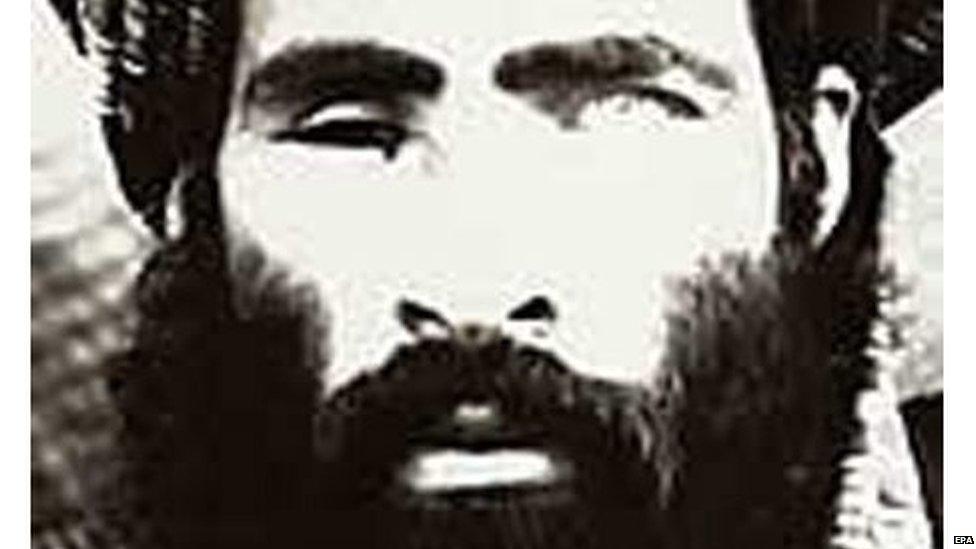Mawlawi Hibatullah: Taliban's new leader signals continuity
- Published

New Taliban leader seen in a picture whose details of where or when it was taken are unknown
The appointment of the new leader of the Afghan Taliban, Mawlawi Hibatullah Akhundzada, represents continuity rather than a dramatic change in the group's overall strategy.
As a respected religious scholar, he is generally held in high regard in Taliban political and military circles.
He was one of the few religious scholars who had gained the esteem of the Taliban's founding leader and spiritual head, Mullah Mohammad Omar.
Both Mullah Omar and his successor, Mullah Akhtar Muhammad Mansour, sought his advice and his fatwas on issues related to war and peace.
Mawlawi Hibatullah Akhundzada served as head of the Taliban courts, before his appointment on 31 July as one of the two deputy heads of the former Taliban leader Mullah Mansour.
Mullah Mansour was killed in the first known US drone attack in Pakistan's Balochistan province on 21 May.
As Mullah Mansour was mostly hidden from public view and not attending meetings openly for security reasons, it was down to the man who ended up succeeding him to handle the day-to-day running of the group.
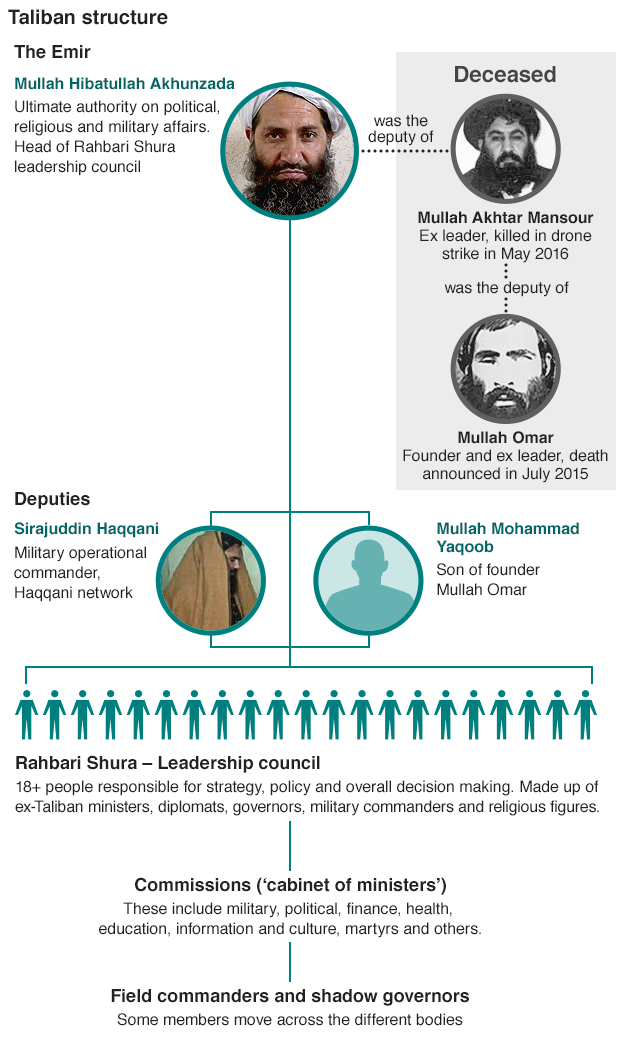

What we know about Hibatullah Akhundzada
More of a religious leader than a military commander, he has been responsible for issuing most of the Taliban's fatwas
Thought to be 55 and has lived most of his life inside Afghanistan, with little evidence of travel
However, experts say, he maintains close links with the so-called Quetta Shura, the Afghan Taliban leaders said to be based in the Pakistani city of Quetta
From southern Kandahar province, he belongs to the Noorzai tribe
Hibatullah in Arabic means "gift from God"

He was more visible than Mullah Mansour's other deputy, Sirajuddin Haqqani, who was mostly busy with military affairs and is commonly known as the head of the Haqqani Network.
For many people, Mawlawi Hibatullah was the face of the group. As Mullah Mansour's deputy and representative, he also regularly met people to collect pledges of allegiance for Mullah Mansour.
Mawlawi Hibatullah does not have any military experience, but he is known as someone equipped with good skills of communication and persuasion.
He also had an instrumental role in negotiating a ceasefire with the Taliban's splinter group in late December 2015 and early January.
Controversy
The Taliban had been proud of their cohesion. But this unity was shattered when the death of Mullah Omar was announced in July 2015.
The emergence of the splinter group which opposed the election of Mullah Mansour as the new leader, and the infighting that followed, was unprecedented.
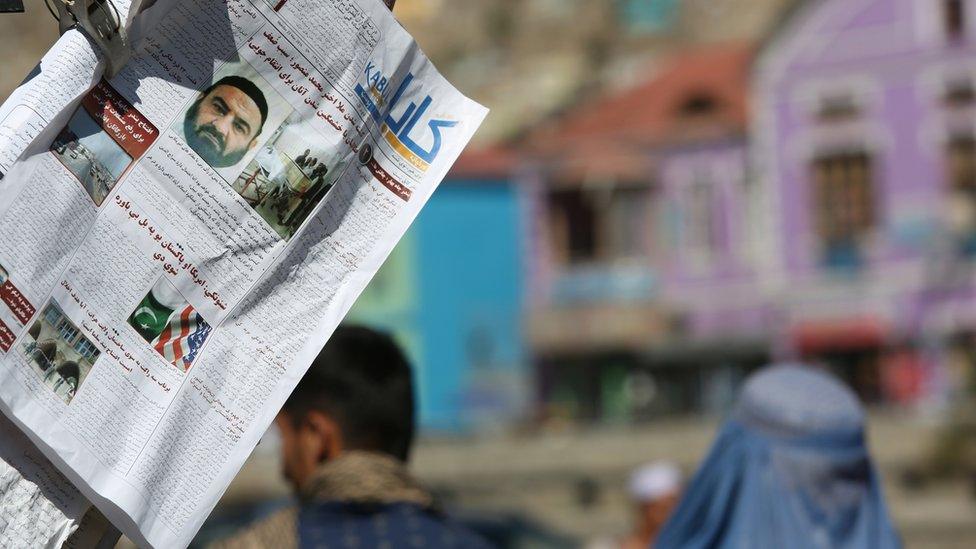
Mawlawi Hibatullah Akhundzada succeeds Mullah Mansour, whose death was widely reported in Afghanistan
The appointment of Mawlawi Hibatullah is mostly aimed at removing differences within the group and dealing with factionalism.
One faction within the Taliban wanted Mullah Mohammad Yaqoob, the eldest son of Mullah Omar, to take over.
He is believed to be about 27 and reportedly graduated from a religious seminary (madrassah) in the Pakistani city of Karachi about two years ago.
Mullah Yaqoob was appointed by Mullah Mansour in April 2016 as the movement's military commander in 15 out of Afghanistan's 34 provinces, as well as a member of the group's powerful decision making body, the Leadership Council.
As he did not have enough experience to be the overall leader, Mullah Yaqoob has now been appointed as one of the two deputies.
There were also reports that Sirajuddin Haqqani might become the new leader of the Taliban.
But for some, he has been a controversial figure and is not thought to be familiar enough with the insurgency landscape and dynamics in the south of Afghanistan.
Sirajuddin Haqqani, who had been appointed a deputy by Mullah Mansour, remains in the same position.
Legitimacy
Mawlawi Hibatullah's religious background complements the Taliban's claim to be a religious movement.
Like the two previous Taliban leaders, Mawlawi Hibatullah also hails from the group's heartland, Afghanistan's southern province of Kandahar.
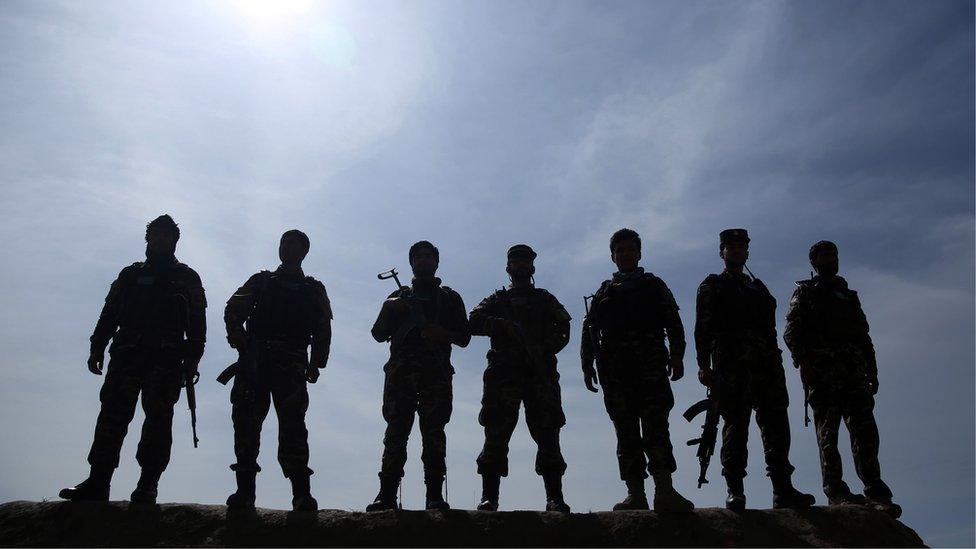
Afghan forces have been fighting the Taliban in parts of the country
He belongs to the Noorzai tribe of the Pashtuns from Panjwai district in Kandahar.
The head of the Taliban's splinter group, Mullah Mohammad Rasool, is also a member of Noorzai tribe.
The Taliban expect that his religious and tribal background as well as his links with Kandahar will not only increase his legitimacy but also help him to keep the group united and motivated.
But those hopes dimmed within hours of his appointment with the spokesman of the splinter group saying it would not accept him as the new leader and arguing that he had been chosen by a small group of Taliban leaders, rather than by the wider rank and file.
Like Mullah Mansoor, Mawlawi Hibatullah's biggest challenge will be ensuring the group's cohesion while dealing with multiple challenges simultaneously. These include countering the so-called Islamic State group (IS) in Afghanistan, continuing the war against the Afghan government and its international allies and fighting the Taliban splinter group.
In the short term, it will be difficult for Mullah Hibatullah to change the overall direction of the Taliban.
After the way Mullah Mansour was killed, and the manner in which his death was welcomed by US and Afghan officials, many in the Taliban are now talking of revenge rather than peace.
- Published26 May 2016
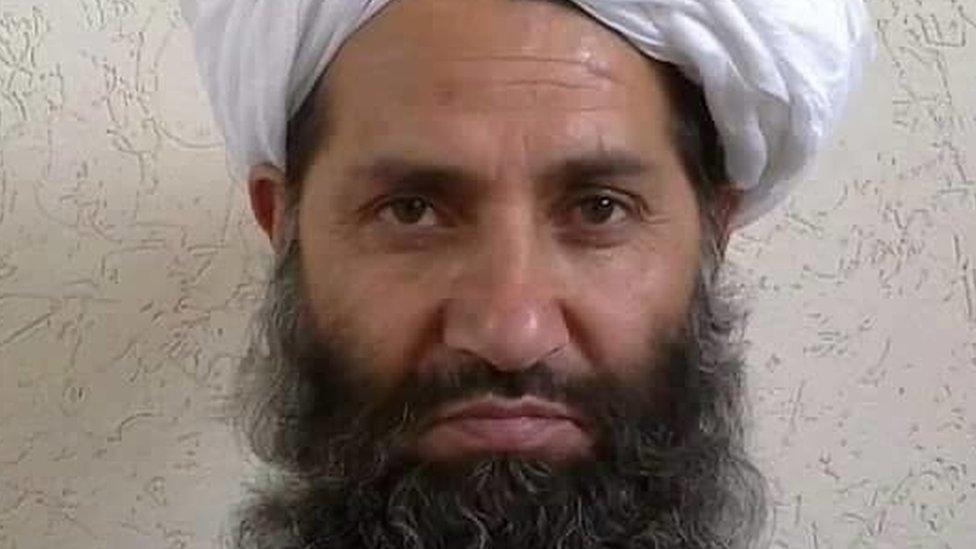
- Published30 July 2015
